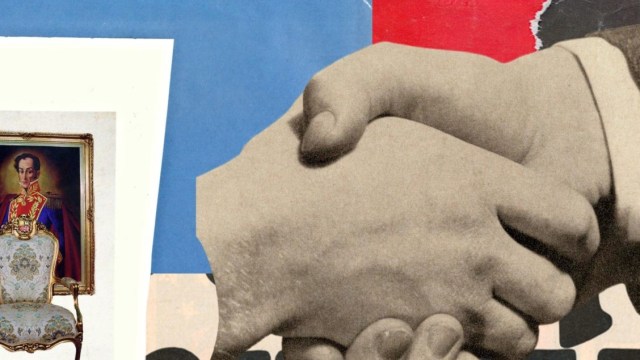
Both the government and the opposition speak often about the conditions they put forward to sit down at the table. But these prerequisites should be, at best, the end result of the negotiations. What do they mean then?
By Caracas Chronicles – Diego Bautista Urbaneja
Jul 8,2021
The regime has been particularly vocal about it. They have three demands: lifting the sanctions, recognizing their de facto rule as legitimate, and handing over some assets which, according to them, belong to the government. The opposing party also has its set of demands, which can all be summed up into one: believable presidential elections. In both cases, the subject of timing is decisive. Maduro’s regime speaks about them as though those three demands had to be met before they even sit down and negotiate when they obviously would have to be the result of the negotiation itself. Demanding as a prerequisite what should be, at best, the end result, leads us to believe what most people have been thinking from the start: the regime has no real interest in negotiating anything, and that all those demands, impossible to satisfy before talks begin, are just a curtain to cover what’s really behind all this; the will to not reach any type of agreement.
The conditions the regime demands can also be summed up into one: lifting the sanctions. That could lead someone to believe that the sanctions actually hurt them, but you can’t really be sure.
It’s been said that, with the help of their official allies and through the illegal market networks, the regime has found a way to build a transaction grid that has helped them evade the sanctions. Armando.Info and El País recently revealed one of those schemes, a quite spectacular one, by the way. In that case, again, the demand to lift all sanctions as a prerequisite for all negotiations, knowing that it should never be a real prerequisite, would be yet another expression of how they really don’t have an interest in those talks leading anywhere.
The goal of the negotiations is to change an established situation, which would serve as a starting point. Each party would have to give something up for the change to actually happen. Let’s see what the initial situation is when it comes to the regime: the regime has been sanctioned, half the world won’t acknowledge it as legitimate, assets that are blocked are also being claimed, and it has control over the territory and weapons. That’s the starting point. It’s quite clear how the board is initially set up. The negative aspects of the regime are three big pieces. They say that the situation must change to their benefit. In exchange for what? The only asset the regime has is power. The only thing they can offer is their own exit. Or more precisely, the real opportunity for Venezuelans to decide if the regime stays or goes.
There’s no maneuver, jugglery, or sleight of hand which will make anyone lose sight of that one thing. You’d have to be an idiot. Releasing some prisoners here and there, naming a couple of authorities on the side, maintaining control of the electoral body, imprisoning some FAES over yonder: none of that fools anyone. For example, those who know who’s who and what’s what in the CNE know that the regime hasn’t lost one iota of control of the electoral process.
Basically, the situation is simple: the majority of the country wants to be given the chance to express its will, the international community wants the same, the regime refuses to bow down to that sentence, in spite of their claim of having eight million people registered in their party and however juicy their prize would be in exchange, at least until the popular consult takes place.
…
Read More: Caracas Chronicles – What everybody knows about the negotiations
…

